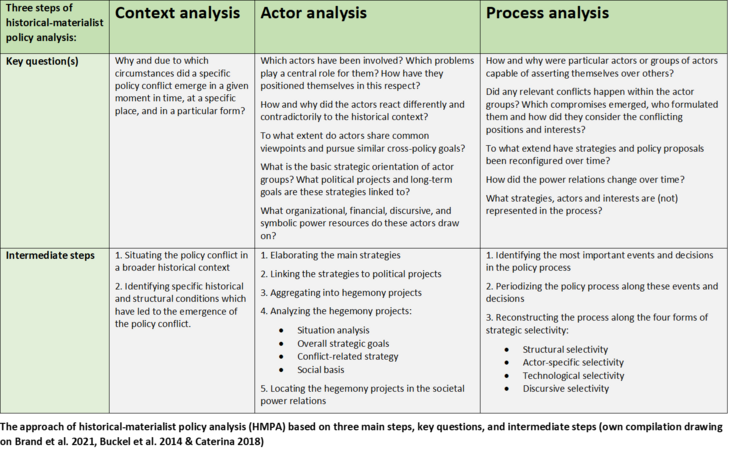The EU Bioeconomy and Future Resource Patterns: An Institutional Analysis from the Perspective of a Social-Ecological Transformation
SUPERVISOR: Christoph GÖRG
PROJECT ASSIGNED TO: Benjamin FLEISCHMANN
Due to global warming, the ongoing depletion of fossil fuels, and the growing stress on planetary boundaries, visions of a bioeconomy have gained political, economic, and scientific importance in recent years. Besides its contribution to solving the environmental crisis, the bioeconomy should improve competitiveness, enable future economic growth, drive rural development and generate new jobs while decoupling economic development from resource use and greenhouse gas emissions. Therefore, it should provide products, chemicals, and energy from renewable biomass through a broad application of biotechnology and integration in circular economy processes.
However, increasing demand for biomass involves social, economic, and ecological trade-offs concerning the production, distribution, and consumption of biomass. This can lead to increased impacts on ecosystems and intensification of social-ecological inequalities and conflicts. Although alternative visions of biomass use and transformation strategies exist, they play only a marginal role in the dominant discourse. Nevertheless, if bioeconomy strategies would further develop, an important issue from a social science perspective will be which visions will prevail and what social restructuring this will require. However, a deep understanding of conflicting interests, strategies, and power relations represents a central research gap in the bioeconomy literature. This research gap is also evident for the bioeconomy in the EU, which has established itself as a policy field in its own right within the last few years. For this reason, and since the EU is already a significant driver of global biomass use, the EU bioeconomy strategy is the central research object of this project.
In this sense, this research project aims to derive a profound understanding of institutional dynamics, power relations, and conflicts within the EU bioeconomy as drivers of resource use. In this regard, it seeks to answer the following questions: What are the main areas of conflict within the EU bioeconomy? Which socio-economic, political, and biophysical developments have led to the emergence of these conflicts? Who are the main actors? Which problem perceptions and interests do they pursue? What are their strategies? What power resources are available to them? To what extent do trade-offs concerning biomass consumption and production, the usage of other materials, and the appropriation of land play a role for these actors? What do the conflicts and institutional configurations within the EU bioeconomy imply for future social-metabolic patterns and social-ecological transformations?
This research project is based on former studies, which already investigated the political economy of the EU bioeconomy as well as on studies of the political economy of energy and resource transitions. It additionally draws on existing social-ecological research on biomass consumption and land use to analyze the EU Bioeconomy in light of current and future developments in resource patterns. The conceptional approach of this research project is based on approaches from critical state theory, which assumes the state to have an influential role in the reproduction and stabilization of specific growth models. Contrary to conventional analyses of political processes, this theory strand understands the state as a social relation rather than a problem-solving subject. This allows analyzing the bioeconomy policy as a conflicted field of various actors who try to assert their interests by addressing strategic selectivity. As an operationalization of this theoretical approach, this research project applies a historical-materialist policy analysis (HMPA) to investigate the conflicts within the EU bioeconomy based on its historical-dynamic and structural context and to group the various actors into political projects and in a second step into hegemony projects. This should when be combined with critical discourse analysis which enriches the study of hegemony struggles with the analysis of practical argumentation. The methods of this project include qualitative content analysis of policy and strategy papers, media analysis, systemic literature review, and semi-structured interviews with policymakers, EU officials, advocacy groups, NGOs, activists, scientists, and industry members.
Overall, this project contributes to a better understanding of societal hurdles and opportunities of the bioeconomy as a catalyst for sustainable transformation. From a conceptional and methodological perspective, it also contributes to the extent to which transformative strategies can be analyzed in a holistic way using the HMPA approach.

